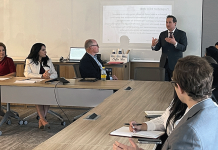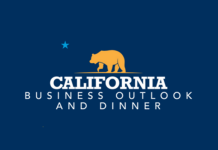California voters have achieved a new milestone: the distinction of being an early presidential primary state due to the Legislature moving the date up three months from June to March 2020.
The 2020 presidential election is the subject of today’s episode of the California Chamber of Commerce podcast, The Workplace . Martin R. Wilson, CalChamber executive vice president, public affairs, is joined by Andrew Acosta, Acosta Consulting, and Steve Maviglio, principal of Forza Communications.
The trio discusses how the early presidential primary will have a major impact on the California election cycle, accelerating all the traditional deadlines, such as candidate filings and contribution disclosures, as well as the imperative of building out the necessary infrastructure to wage a successful and expensive race for office.
The 2020 presidential primary in California will be held on Tuesday, March 3, 2020. The primary ballot will include all candidates for office including state, local and federal seats. Absentee ballots will drop in the mail 29 days before the election.
“California voters are eligible to make their choice on the same day that Iowa voters are attending their caucus meetings,” says Wilson.
California has moved up the primary from June to March to potentially have a greater impact on who gains the Democratic Party nomination.
Everyone is familiar with Iowa and New Hampshire primaries, but what impact do those primaries have on California, Wilson asks.
California voters getting their absentee ballot typically let them sit on their desk for a few weeks, comments Maviglio.
“Looking at how this is going to break down: the absentee ballots go out as Iowa starts, just trying to figure out who has momentum at that point, going through those states,” says Acosta. “Iowa is looking to change how they do their caucuses; they might have virtual caucuses…and a lot of states are happening. Some of it’s still in flux.”
Maviglio agrees, saying that whatever happens in Iowa and New Hampshire, “will still be very significant, but as you know in the past, California has been basically irrelevant because the primary came at the tail end of June.” The earlier primary “really puts us in play,” says Maviglio.
With so many candidates, voters are likely to get more strategic about who they support, the trio agrees.
“As more candidates come online, and people learn more about some of these folks, the excitement factor is not going to dissipate, but it could transfer to the flavor-of-the month candidate, and then we will see who can sustain it,” says Maviglio.
California lives with a very slow vote count, Wilson comments. Ballots have to be postmarked by Election Day, and then there are provisional ballots, Election Day turn-ins, so voters aren’t likely to know which candidate advances for some time.
“There could be some twists and turns,” says Acosta. “I think we’ve all learned not to call projections on election night in California. I think it’s best to wait.”
Maviglio clarified that that vote is broken down by California’s 53 congressional districts, not the popular vote, so it’s likely to be weeks before the outcome is settled: “There will be many other primaries done and tallied before we do.”
Subscribe to The Workplace
Subscribe to The Workplace on Google Play, iTunes, PodBean, Tune In and Stitcher. New episodes will be released each Wednesday.




